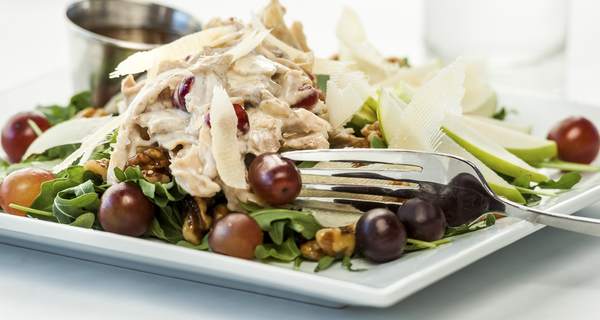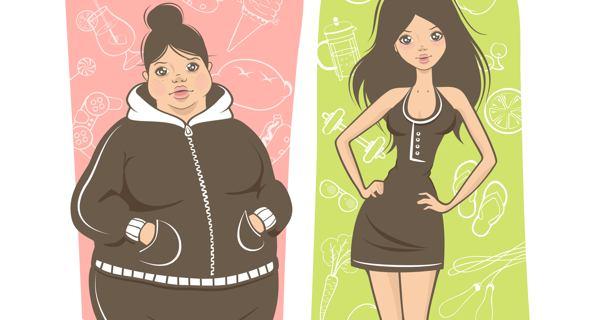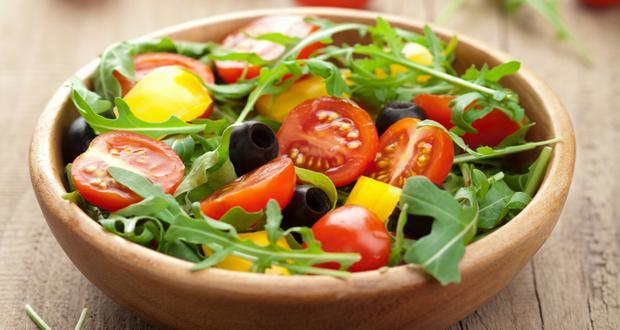A Healthy Amount of Calories
Eating too much or too little can have dire consequences for your health. According to the Center for Disease Control and Prevention (CDC), the percentage of U.S. adults aged 20 or older who are overweight rose to 35.1 percent in 2012.
How do you know if you’re eating too much or too little?
Daily Calories
According to the United States Department of Agriculture (USDA), the recommended calorie intake for women aged 19-51 years ranges from 1800-2000 calories per day. Generally, younger women require more calories than older women. Men aged 19-51 years of age require even more, anywhere between 2,200-2,400 calories per day.
People that lead more active lifestyles or those who want to gain weight require more calories. For children aged between 2 and 18 years, calorie intake ranges from anywhere between 1000-2200 per day. A full list of daily calorie needs can be found at ChooseMyPlate.gov
How to Lose Weight
If you want to lose weight, the answer is simple (at least in theory). You must eat fewer calories than you use each day.
For women, that means consuming less than 2,000 calories a day on average. But be careful. Diets that promote very low calorie intakes (usually between 800 to 1,000 calories per day) can have major, negative side effects, such as:
- constipation
- nausea
- diarrhea
- fatigue.
Rapid weight loss can also cause gallstones. The risk is especially high for women.
Keep track of what you eat each day: Make a list in a notebook or use one of the many free calorie counters available online, such as MyFitnessPal.com. Remember to eat a healthy balance of fruits, vegetables, grains, protein, and dairy.
Limit the amount of sugar you eat each day.
Things to Watch Out For
Many foods that we perceive as healthy are actually high in calories. Foods such as peanut butter, chocolate, cheese, pasta, salad dressing can quickly add inches to your waistline.
To make sure you aren’t inadvertently eating something high in calories, check the nutrition label on the back of the packaging. Pay attention to the serving size!
Also, avoid eating foods that contain a lot of “empty calories.” These are typically foods that are high in fat and sugars, but contain little to no other nutrients. Check out these tips from the USDA to learn more about empty calories.
When you eat out at a restaurant, ask for nutrition and calorie information about the food on the menu. And remember, you don’t have to finish everything on your plate. You can always take leftovers home to munch on later.
Be Smart About Dieting
Diets that require you to consume less than 200 calories a day are known as “crash diets.” As you might imagine, these can lead to all sorts of health problems. Crash diets can:
- suppress your immune system
- slow down your metabolism
- cause dehydration
- lead to permanent heart problems, if done repeatedly
Cleanses can also be dangerous. These are often liquid-based diets. For example, people on the Master Cleanse consume nothing but a mixture of water, lemon juice, maple syrup, and cayenne pepper for several days.
Cleanses are based on the incorrect assumption that the body needs help getting rid of toxins, but not only are these diets ineffective, they also can be dangerous. Yo-yo dieting can eventually lead to permanent heart muscle loss.
Be wary of anything that severely limits what you can and cannot eat or drink, or dramatically restricts how many calories you consume. The best way to lose weight is to lose weight slowly, which according to the CDC means no more than one or two pounds per week. Think about how long it took you to gain weight. It will typically take you that long — or longer — to lose it.
- DON'T MISS
- Revealed — how potatoes can help you lose weight
- 5 herbal teas that can help you slim down!
- Fitness Plan Day 103: Count your calories — gained and lost!
- Try this kokum-horse gram mix for effective weight loss
- Losing 18 kgs was easy for Niharika and YOU can do it too!
- What you can learn from Naini Setalvad’s amazing weight loss story
- Exercises to lose weight from your upper body
- Can having sex lead to weight loss?
- Revealed — HIIT burns most calories
- Can homeopathy help you lose weight?




